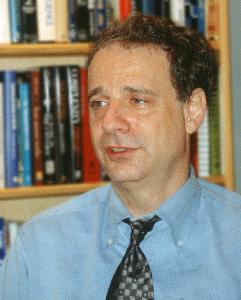
It took him a while to realize how obsessively his new friend was tunneling into the very bedrock of modern science. Feynman struck him as uproariously American-unbuttoned and burning with physical energy. Half genius and half buffoon, Freeman Dyson, himself a rising prodigy, wrote his parents back in England. Meanwhile new colleagues, young physicists and mathematicians of his own age, were seeing him for the first time and forming their quick impressions. For a while he could hardly work-by day a boyish and excitable professor at Cornell University, by night wild in love, veering from freshman mixers (where women sidled away from this rubber-legged dancer claiming to be a scientist who had made the atomic bomb) to bars and brothels. The war was over, a new era of science was beginning, and he was not at ease. Why build roads and bridges meant to last a century? If only they knew what he knew, they surely would not bother. It gnawed at him that ordinary people were living their ordinary lives oblivious to the nuclear doom that science had prepared for them. He felt he possessed knowledge that set him alone and apart. Richard Feynman, younger and not so responsible, suffered a more private grief. Robert Oppenheimer made speeches about his shadowed soul, and other physicists began to feel his uneasiness at having handed humanity the power of self-destruction. We lead a charmed life.Īfterward demons afflicted the bomb makers.

This hopeful message went to an Albuquerque sanatorium from the secret world at Los Alamos. And have only had a little time to change that here and there.Ī Half-Assedly Thought-Out Pictorial Semi-Vision Thing


 0 kommentar(er)
0 kommentar(er)
